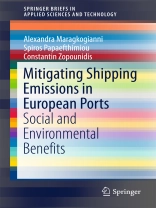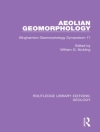The book quantifies the impact of in-port ships’ greenhouse gas emissions and air pollution in adjacent cities, and evaluates the feasibility of implementing shore-side electricity facilities in Europe to reduce the unwanted social and environmental effects of ships at berth. The book also discusses the potential of future “green” ports and the use of shore side electricity as a means of achieving them. Individual chapters focus on the economic and social costs of in-port ships’ emissions by illustrating current environmental policies to mitigate air emissions and the available abatement measures for in-port emissions. It also discusses the external cost of vessel emissions in ports as well as the impacts on air quality and human health. Examining the expected barriers to the implementation of shore- side electricity facilities, it proposes policies to accelerate the implementation of relevant mitigation measures.
विषयसूची
1. Introduction: Shipping industry and induced air pollution.- 1.1 Potential impacts of maritime transport air emissions.- 1.2 Growing rates of shipping trade and environmental profile of maritime industry.- 2. Mitigation of air emissions: existing policy actions and legislation.- 2.1 Current environmental policies.- 2.2 Kyoto Protocol.- 2.3 Marpol Convention.- 3. Ships’ emissions and air quality in port-cities.- 3.1 Current methodologies for the estimation of maritime emissions.- 3.2 Relevant studies on shipping emissions.- 3.2 Examples of estimated emissions in ports.- 4. Economic and social cost of in-port ships’ emissions.- 4.1 Estimating the effects ships activities in ports to air quality and human health.- 4.2 External costs of vessel emissions in ports.- 5. Available abatement measures for the unwanted environmental impacts of ships at berth.- 5.1 Techniques of in-port emissions’ abatement.- 5.2 Potential of Shore Side Electricity in Europe.- 5.3 How ports can be converted to ‘green’ ports?
लेखक के बारे में
Dr. Constantin Zopounidis is Professor of Operations Research, at Technical University of Crete (Greece), Distinguished Research Professor in Audencia Nantes, School of Management (France), and Senior Academician of both the Royal Academy of Doctors and the Royal Academy of Economics and Financial Sciences of Spain. In recognition of his scientific work, he has received several awards from international research societies. His academic interests include Multicriteria Intelligent Decision Support Systems, Management Science and Decision Making, Operational Research and Energy Management. He has edited and authored 80 books in international publishers and more than 450 research papers in scientific journals, edited volumes, conference proceedings and encyclopedias in the areas of finance, accounting, operations research, and energy management. Currently he is Editor-in-Chief, Swheries Editor or Associate Editor in more than 10 Journals, e.g. Operational Research: An International Journal (Springer), Multiple Criteria Decision Making and Cooperative Management (Springer), Optimization Letters (Springer).
Dr. Spiros Papaefthimiou is presently Assistant Professor in Energy Efficiency Technologies and Energy Management, in the School of Production Engineering and Management at Technical University of Crete in Greece. He is specialized in energy efficiency issues and energy saving a
pplications. His research interests include experimental preparation and characterization of energy saving devices, technology of ‘smart’ materials for energy applications, renewable energy systems, advanced solar collectors, photovoltaics, energy characterization of building structural elements, environmental analysis of systems, maritime emissions modeling, Life Cycle Assessment & Eco-Efficiency analysis. He has published more than 100 papers in refereed international journals and conferences.
Alexandra Maragkogianni is a Ph D candidate in the department of Production Engineering and Management at Technical University of Crete, Greece. She holds a Bachelor degree in Political Sciences & Public Administration from National University of Athens, School of Law, Economics and Political Science. She has an M.A. in Marketing & Communication from Business School of Athens and a M.Sc. with merit in Energy, Technology & Environmental Economics from City University of London.Her research activities emphasize to the major technical, political and economic issues regarding the “green” shipping sector, namely maritime emissions modeling and environmentally friendly global policies.












